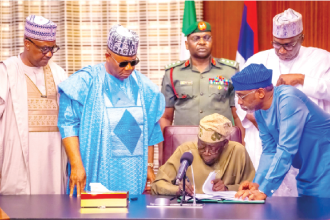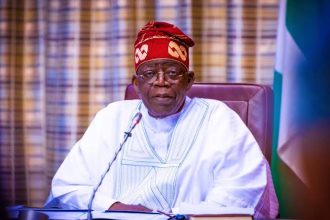Background: Why Rivers State Went Under Emergency Rule
The crisis in Rivers State reached a boiling point earlier this year when disagreements between Governor Fubara and the State House of Assembly escalated into a full-blown governance paralysis. The dispute led to a situation where both the executive and the legislative arms of government could no longer work together effectively. President Tinubu, citing national security concerns and the need to protect vital economic assets such as oil pipelines, declared a state of emergency six months ago.
“It became inevitable following what I described as a total paralysis of governance in Rivers that left the governor and the House of Assembly unable to work together,” President Tinubu recalled in his Wednesday statement.
The President also noted that the crisis had direct consequences on the oil and gas sector, with repeated cases of pipeline vandalism and disruption of production activities, costing Nigeria millions of dollars in lost revenue.
Tinubu’s Statement: A Return to Democratic Governance
In his official statement signed on Wednesday, President Tinubu explained that the decision to end emergency rule was informed by intelligence reports indicating a newfound spirit of cooperation among stakeholders in the state. He expressed optimism that Rivers is now ready to return to democratic processes.
“From the intelligence available to me, there is a new spirit of understanding, a robust readiness, and potent enthusiasm on the part of all the stakeholders in Rivers State for an immediate return to democratic governance. I therefore do not see why the state of emergency should exist a day longer than the six months I had pronounced at the beginning of it.”
He further added that ending the emergency is not only a relief to Rivers residents but also a “remarkable achievement for Nigeria’s democracy.”
Timeline of Events
| Date | Event |
|---|---|
| March 2025 | Governance crisis deepens between Governor Fubara and State Assembly. |
| April 2025 | President Tinubu declares a six-month state of emergency in Rivers State. |
| May–August 2025 | Attempts at reconciliation fail despite interventions by elders and stakeholders. |
| September 17, 2025 | President Tinubu signs statement ending emergency rule at midnight. |
| September 18, 2025 | Governor Fubara, Deputy Governor Odu, and Speaker Amaewhule resume office. |
Reactions From Stakeholders
Governor Siminalayi Fubara
Governor Fubara welcomed the President’s announcement, describing it as a “restoration of the people’s mandate.” He pledged to prioritize reconciliation and development in his new term of governance.
Deputy Governor Ngozi Nma Odu
The deputy governor expressed gratitude to the people of Rivers for their patience during the six-month hiatus, assuring that her office will “work tirelessly to rebuild confidence in government institutions.”
Speaker Martins Amaewhule
In a statement, the Speaker emphasized that the Assembly will now “focus on lawmaking and oversight responsibilities to strengthen governance in Rivers State.”
Civil Society Groups
Civil society organizations hailed the end of emergency rule as a win for democracy. Groups such as the Niger Delta Civil Forum stressed the need for continuous dialogue to prevent a relapse into conflict.
Oil and Gas Sector
Stakeholders in the oil sector welcomed the decision, noting that stability in Rivers State is crucial to Nigeria’s overall oil production. Industry experts project that Nigeria could recover some of its lost revenue once activities resume smoothly.
Implications for Rivers State
The lifting of the emergency rule comes with far-reaching political, economic, and social implications:
- Political Stability: Democratic institutions in Rivers can resume their roles, fostering accountability and governance.
- Economic Recovery: Oil production and other economic activities are expected to bounce back with reduced disruption.
- Civic Confidence: Citizens’ trust in democracy may be strengthened, especially after months of uncertainty.
- National Security: A peaceful Rivers State reduces risks of unrest in the Niger Delta region.
Expert Analysis
Political analysts say Tinubu’s decision reflects both confidence in local leaders and a strategic move to demonstrate his commitment to democratic governance. Dr. Nnamdi Akachukwu, a political scientist at the University of Port Harcourt, noted:
“President is signaling that Nigeria must move past authoritarian fixes and embrace dialogue and democratic processes. This could set a precedent for handling similar crises in the future.”
Economists also predict that the state’s return to normalcy will contribute positively to Nigeria’s GDP growth, particularly through the oil and gas industry.
Looking Ahead
As Rivers State transitions back to full democratic governance, challenges remain. Political reconciliation, security of oil assets, and rebuilding public trust will be at the forefront. Yet, the optimism expressed by the President and key stakeholders suggests that the state may be on a path to renewed stability and growth.
President Tinubu’s decision to end the state of emergency in Rivers State is more than a political announcement, it represents a crucial turning point for Nigeria’s democracy. As Governor Fubara and his team resume office, the nation will be watching closely to see if this new chapter brings peace, development, and a lasting spirit of cooperation in one of Nigeria’s most critical states.












